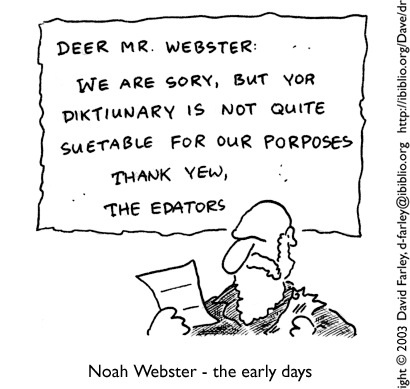When I read this masterful essay by Victor Davis Hanson, I thought I would have nothing additional to say about it. Comparing the cultural corruption of our contemporary elites to the declining days of Rome is a natural. But maybe too natural. He says, at one point, in service to his Roman Satyricon analogy:
In good Petronian fashion, the narcissist Anthony Weiner sent pictures of his own genitalia to near-strangers, under the Latinate pseudonym “Carlos Danger.” Was Eliot Spitzer any better? As the governor of New York, he preferred anonymous numbers — “Client #9” — to false names, real to virtual sex, very young to mature women, and buying rather than romancing his partners. Is there some Petronian prerequisite in our age that our ascendant politicians must be perverts?
Transvestitism and sexual ambiguity are likewise Petronian themes; in our day, the controversy rages over whether convicted felon Bradley Manning is now a woman because he says he is. The politically correct term “transgendered” trumps biology; and if you doubt that, you are a homophobe or worse. As in the Roman Satyricon, our popular culture also displays a sick fascination with images of teen sex. So how does one trump the now-boring sexual shamelessness of Lady Gaga — still squirming about in a skimpy thong — at an MTV awards ceremony? Bring out former Disney teenage star Miley Cyrus in a vinyl bikini, wearing some sort of huge foam finger on her hand to simulate lewd sex acts.
The orgies at Trimalchio’s cool Pompeii estate (think Malibu) suggest that in imperial-Roman society Kardashian-style displays of wealth and Clintonian influence-peddling were matter-of-fact rather than shocking. Note that in our real version of the novel’s theme, Mayor Filner was not bothered by his exposure, and finally had to be nearly dragged out of office. Carlos Danger would have been mayor of New York, but the liberal press finally became worried over its embarrassment: Apparently two or three sexting episodes were tolerable, but another four or five, replete with more lies, risked parody.
As usual, Hanson makes many excellent points, particularly on the sorry state of education among our self-proclaimed best and brightest. But I can’t help feeling that at base he’s yearning for a past that can’t come back. His essay reminded me, for example, of this emotional outpouring by Juan Williams:
Fifty years after the March on Washington, mystical memories of that seminal moment in the civil-rights era are less likely to focus on movement politics than on the great poetry and great music.
The emotional uplift of the monumental march is a universe of time away from today’s degrading rap music—filled with the n-word, bitches and “hoes”—that confuses and depresses race relations in America now…
King sailed past… sad realities to invoke his soaring vision of the nation at racial peace. When he finished speaking, the crowd spontaneously broke into singing “We Shall Overcome,” holding hands and swaying as if in communal prayer.
That sense of unity, promise and purpose was also evident in the music of the march. It’s music that still stirs emotions to this day.
Bob Dylan’s “Blowin’ in the Wind,” written in 1962, hit No. 2 on the Billboard charts just before the crowd gathered in Washington. When the folk-music trio Peter, Paul and Mary sang the song for the 250,000 people in front of the Lincoln Memorial that day, it became an interracial anthem for change. The song itself drew inspiration from two others: The lyrics brought to mind Woody Guthrie’s “Bound for Glory,” which included an allegory about newspapers blowing down city streets, and its melody came from a slave protest song called “No More Auction Block.”
And so they sang in Washington: “Yes, how many years can some people exist before they’re allowed to be free? Yes, how many times can a man turn his head, pretending that he just doesn’t see? The answer my friend is blowin’ in the wind, the answer is blowin’ in the wind.”
Sam Cooke, the black gospel and rhythm-and-blues singer began performing the Dylan song immediately after the march. He had been working on a song about the hurt he felt as a black man living with racism yet also with hope for better times. In December 1963, Cooke recorded “A Change Is Gonna Come.” The song became a hit on black radio, another anthem of yearning for a nation without racial rancor.
Nostalgia, pure and simple. But you can’t ever go back. All the intervening time has happened, whether we wish it did or not. Maybe because some people got stuck in time. Krauthammer:
The Civil Rights movement is “intellectually bankrupt,” Charles Krauthammer charged Monday night.
During his regular appearance on the panel segment of Special Report, Krauthammer argued that the movement is subsisting on the nostalgia from fifty years ago when it battles voter ID laws.
“Is the biggest issue in African-American life today the voter ID law? Is that going to alter the course of society in black America, the inner cities? The terrible standard in the schools? The breakdown of the family and all that?” Krauthammer asked.
“It’s nostalgia of a movement that’s intellectually bankrupt,” he said, and predicted that the voter ID laws the movement is challenging will stand up in court.
P.S. This is less than half the post. I’m done with either WordPress or the U.S. government. Restored my account at Facebook Sunday. Today I can’t post here in three tries. When does a paranoid really have enemies? You figure it out.
P.P.S. it didn’t start with the waif Miley Cyrus.













